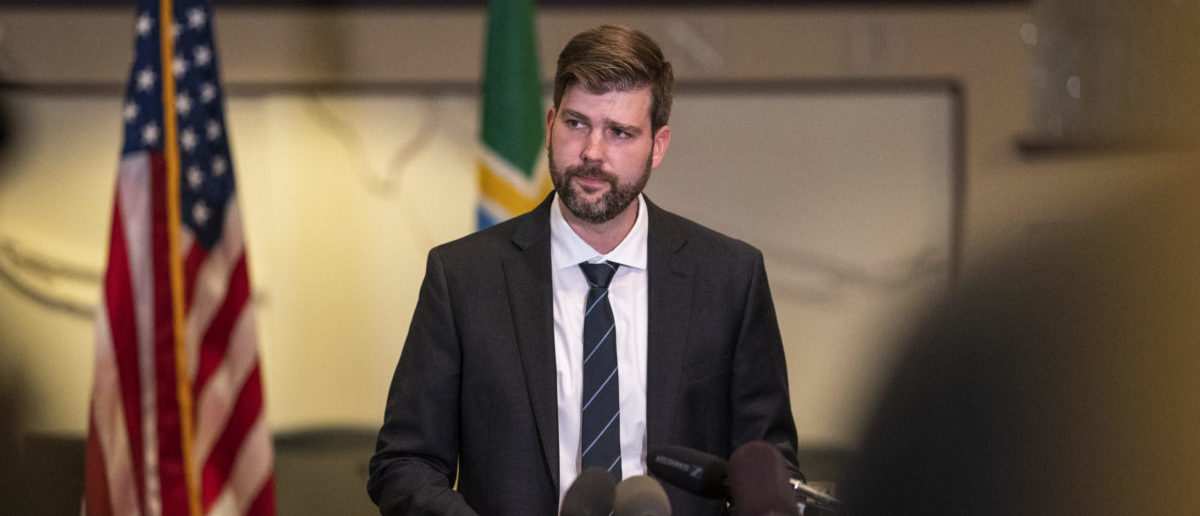Portland is feeling the effects of a years-long law enforcement crisis involving “defund the police” narratives, “unprecedented” police st...
Portland is feeling the effects of a years-long law enforcement crisis involving “defund the police” narratives, “unprecedented” police staffing struggles and flawed policymaking, experts told the Daily Caller News Foundation. Meanwhile, the liberal city has set an all-time record for homicides in 2022.
A deadly stabbing became the city’s 91st homicide in 2022, police said, officially surpassing 2021’s record 90-homicide total, according to KGW8. Portland’s city government reduced the Portland Police Bureau’s (PPB) budget in 2020 after it hired too few officers to keep pace with population growth for most of the previous decade, Manhattan Institute fellow John Ketcham told the DCNF.
“A tripling in the annual number of homicides since 2019 —far above the national trend — has further diverted officers from responding to other important calls,” Ketcham said. “Some city leaders’ repeated criticisms of the police have compounded understaffing to dampen morale further in the bureau, resulting in unprecedented struggles to hire and retain qualified officers. While the latest budget restored police funding, it will take time and political will to repair mutual bonds of trust. ”
The PPB fell to a 30-year-low of 773 sworn members before adding 20 on Sept. 22, the bureau announced, hailing its “first measurable staffing increase in years.” The bureau had officer vacancies as of Dec. 2, according to police staffing data.
There were 38.6% more motor vehicle thefts in Portland from November 2021 through October 2022 than during the previous 12 months, and robberies surged about 28.5%, PPB police data shows.
Homicides and car thefts tend to indicate broader trends fairly because it’s generally clear when someone has died or a car is gone, Manhattan Institute Policing & Public Safety Research Head Rafael A. Mangual noted.
“Everyone knows that Portland elected officials embraced the ‘defund the police’ narrative in 2020, which has resulted in budget cuts, loss of police officers (to other jurisdictions or retirement), and difficulties in police recruitment,” John Charles, president of the Oregon-based Cascade Policy Institute, told the DCNF. “But it’s not clear how to reverse that, or whether reversing it would actually lead to fewer homicides.”
Protests and riots swept across the country during the late spring and summer of 2020 after a police officer killed George Floyd in Minneapolis, Minnesota. Demonstrations in Portland happened on more than 70 consecutive days, with rioters setting fire to the inside of a police union building on multiple occasions.
Portland City Commissioner Jo Ann Hardesty celebrated in 2020 after the city council voted for the fiscal year 2020-2021 city budget cutting more than $27 million from the police bureau’s purse. Tech business owner Rene Gonzalez defeated her in their November election contest, declaring, “Time to restore Portland!”
Then-City Commissioner Chloe Eudaly voted against the 2020 budget on June 11 of that year and said its proposed police budget cuts were insufficient after activists called for a $50 million budget reduction, according to KGW8. She entered a second “no” vote six days later, saying her main concern the week before had been that the city was failing to shrink its officer staff.
Voters did not re-elect Eudaly that November, OPB reported.

PORTLAND, OR – AUGUST 30: Mike Schmidt, Multnomah County district attorney, speaks to the media at City Hall on August 30, 2020 in Portland, Oregon. A man was fatally shot Saturday night as a Pro-Trump rally clashed with Black Lives Matter protesters in downtown Portland. (Photo by Nathan Howard/Getty Images)
Portland’s crime wave and police staffing crisis have continued as its county’s highest-ranking prosecutor fails to prosecute many criminal cases.
From January to November 21, Multnomah County District Attorney Mike Schmidt’s office prosecuted about 46% of misdemeanor theft cases presented by police, while neighboring Washington and Clackamas counties’ district attorneys’ offices respectively prosecuted 93% and 84% of such cases, KGW8 reported.
“I have no doubt his policies are contributing to the general lawlessness in Portland,” Heritage Foundation legal fellow Zack Smith said.
Schmidt announced in August 2020 that his office would stop charging protestors involved in the George Floyd demonstrations with rioting, interfering with a police officer, disorderly conduct, criminal trespass or misdemeanor harassment unless there was also a single assault, theft or property damage charge.
“Schmidt needs to ensure that there are visible consequences for those who engage in such anti-social behavior, especially for repeat offenders,” Ketcham said. “But he set a poor precedent of not prosecuting the vast majority of destructive protestors arrested in 2020.”